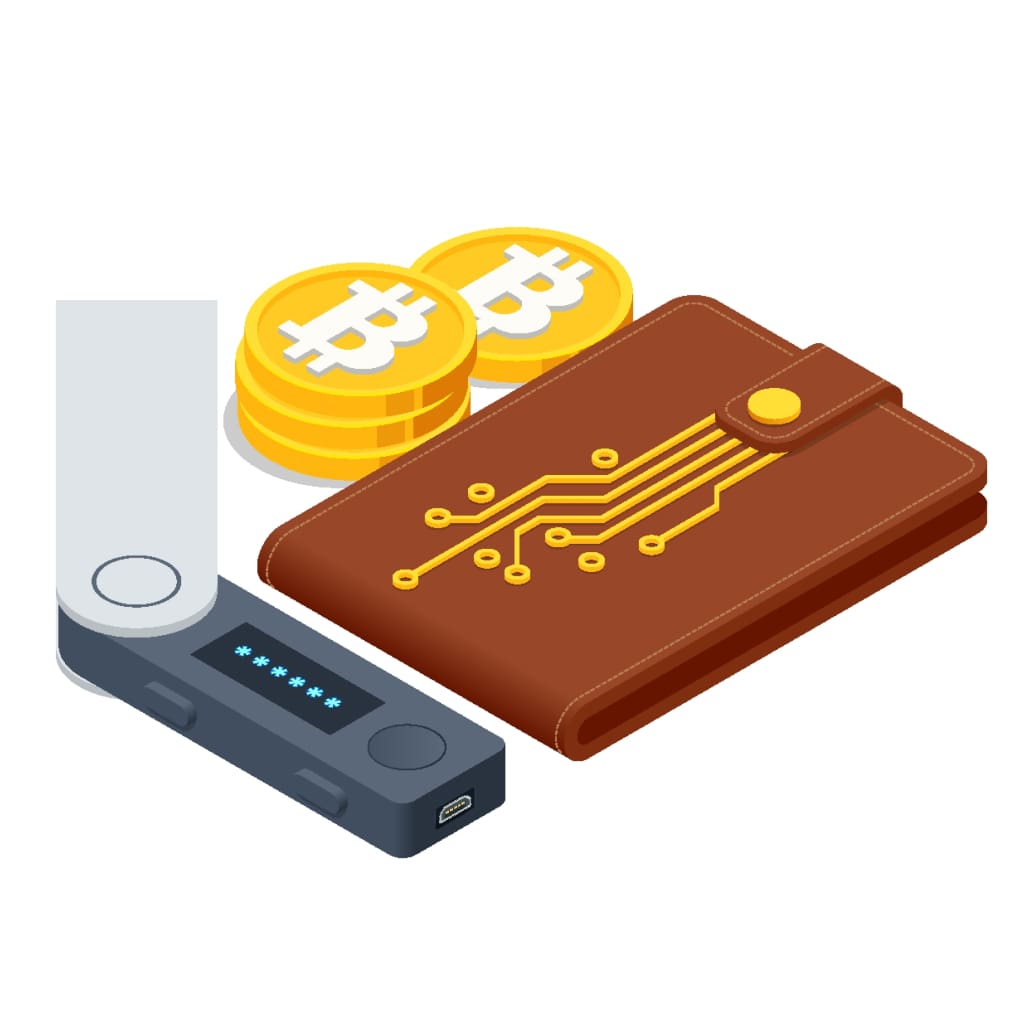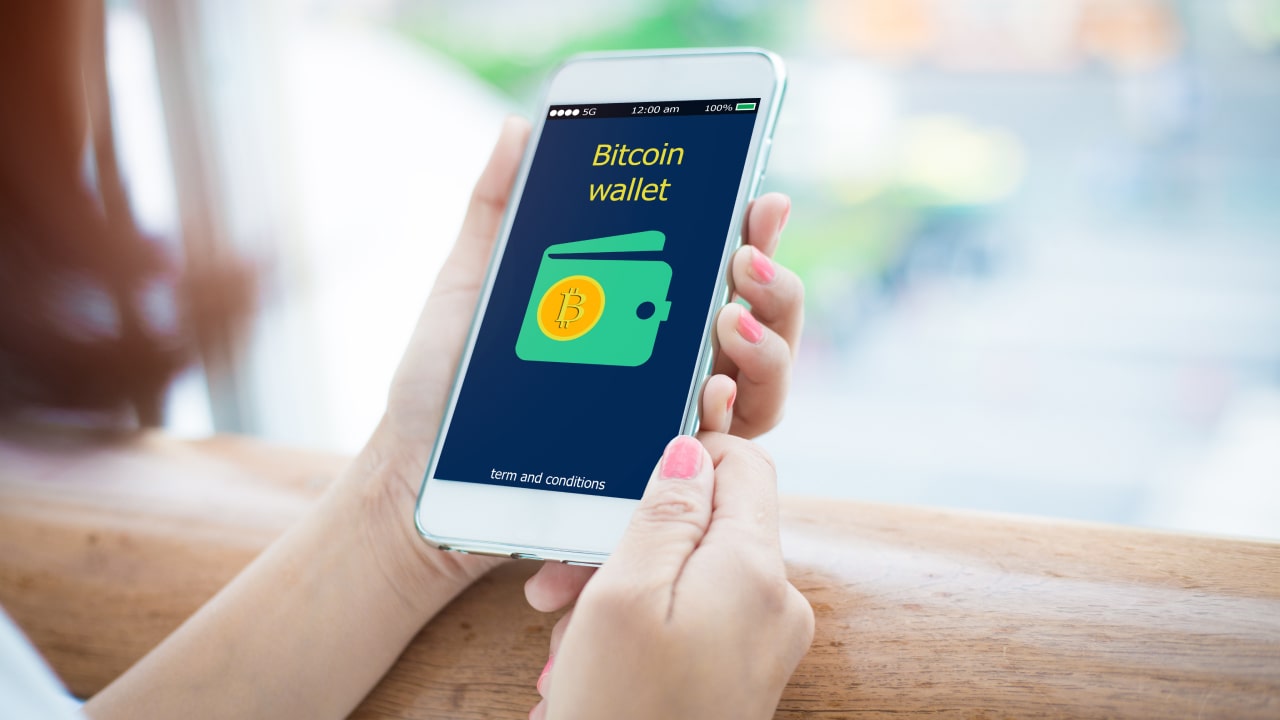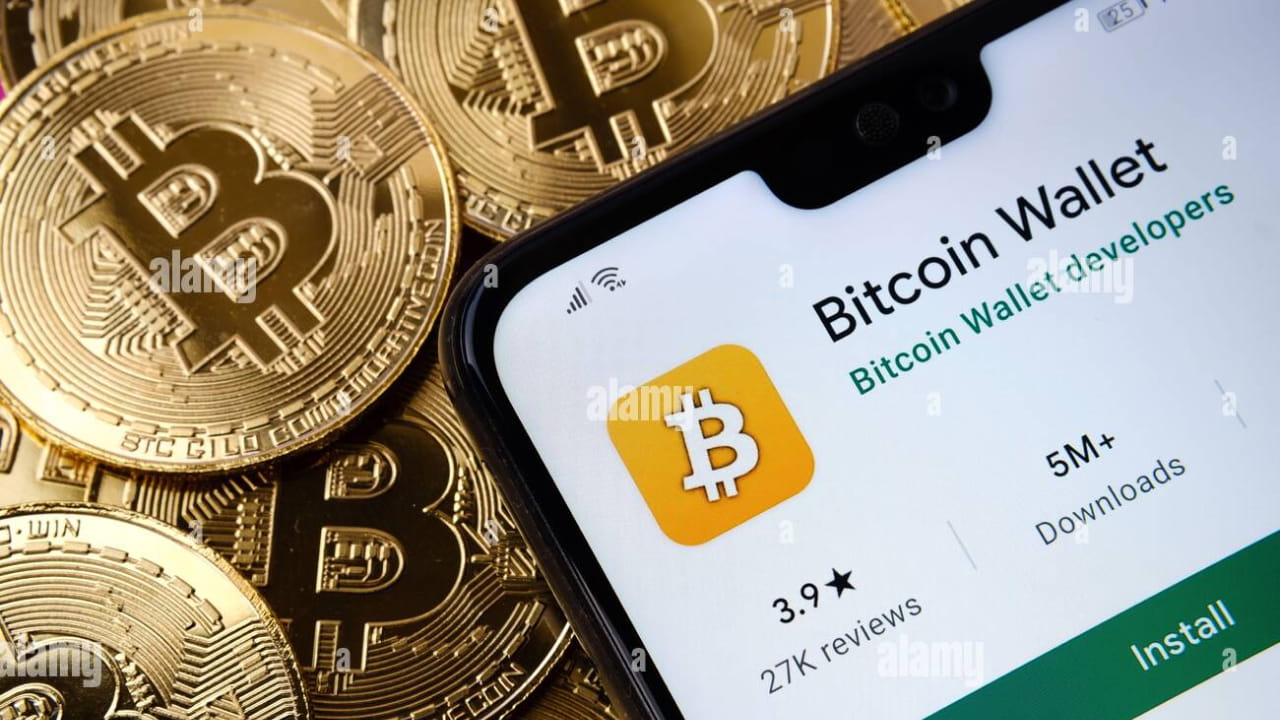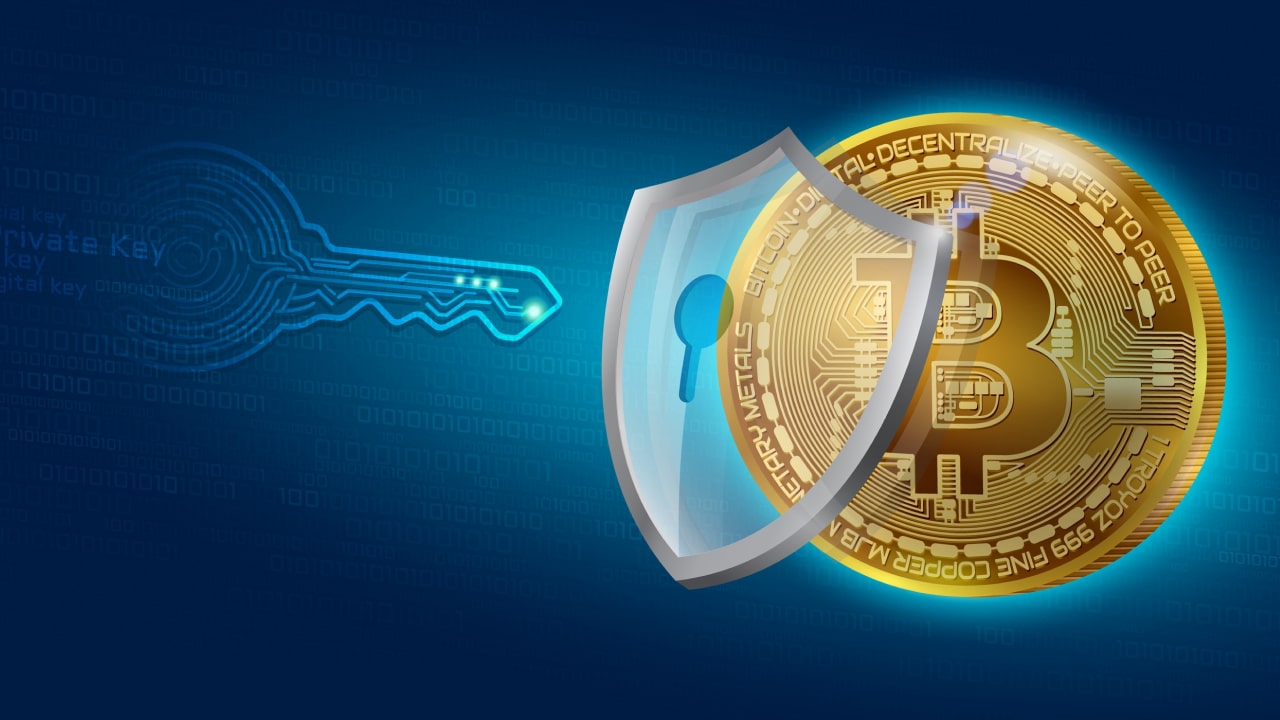Bitcoin Wallets for New Users

Bitcoin wallets play a crucial role in the tool sets for people who are new to the world of cryptocurrencies such as Bitcoin. They act as secure digital wallets for holding, sending, and receiving of bitcoins.
For beginners, the information about Bitcoin wallets is extremely important, as they form the core of the peculiarities of cryptocurrency management.
Being available as software, hardware, and paper wallets, new users have to take into account such characteristics as security features, user-friendliness, compatibility, backup solutions, anonymity options, and market reputation when choosing their first Best Bitcoin casino wallet.
Opting for a wallet that is consistent with their demands and tastes will enable new users to begin their journey into the world of cryptocurrency with the assurance that their digital assets are securely stored and well within reach.

Best Bitcoin Wallets For Beginners
For novices, choosing a proper wallet while starting with Bitcoin is an important part of managing their digital assets. The best Bitcoin wallets for beginners have straightforward user interfaces and strong security features and are compatible with multiple platforms.
Wallets such as Coinbase and Trust are the preferred options that have simple designs and are easy to use, thus enabling beginners to navigate the complexities of cryptocurrency management with confidence.
Moreover, hardware wallets, such as Ledger Nano S, have the benefit of strengthening the security of private keys by saving these keys offline and, thus, providing more reassurance to such investors. Wallet selection is the first step as newcomers to the field of Bitcoin begin to explore the Universe that the digital currency is.
Why You Need A Bitcoin Wallet
A Bitcoin wallet is a must for anyone who wants to buy, sell, or hold bitcoins. A Bitcoin wallet is like a digital crypto wallet that safely stores, sends, and receives bitcoins. In the absence of a Bitcoin wallet, you would have nowhere to put your bitcoins, much like not having a physical wallet for traditional currency.
Whether you are an occasional investor, a trader, or a person who wants to make use of bitcoins for transactions, a Bitcoin wallet gives you all the important tools to manage your digital assets.
In addition, having a Bitcoin wallet makes you the owner of the funds, and you can use them as you please, also keeping them safe from any unauthorized access.
Different Bitcoin Wallets For Beginners
For beginners venturing into the world of Bitcoin, understanding the diverse field of Bitcoin wallets is essential. These wallets serve as digital repositories for storing, sending, and receiving bitcoins, each offering unique features and levels of security.
Hot Wallets
Hot wallets are a type of crypto wallets that stay online with the internet and cryptocurrency networks so that the users can easily store, send, and receive tokens.
They are very critical in making transactions easier and providing a platform that helps handle digital assets. Hot wallets are used for their convenience and accessibility, making them preferable amongst crypto users for dealing with transactions.
Here is a breakdown of the different types of hot wallets:
- Web-Based Wallets: Hot wallets are online wallets and are accessed by a web interface that opens through an Internet browser. Such wallets are handy since they are reachable via any device with an online connection, and thus, they are ideal wallets for users looking for flexibility in managing their cryptocurrencies. Some web-based wallets are MetaMask, which is specific for Ethereum ecosystem transactions, and Coinbase Wallet, which targets the users of the Coinbase exchange. They are well-explicated wallets that are good for those who like to access their digital assets wallets online.
- Desktop Wallets: Desktop wallets are hot wallets that are downloaded and run on desktop computers or laptops. They allow users to directly manage their private keys and provide more security than web-based wallets. Most of the people who care about the security of their cryptocurrencies prefer desktop wallets that store crypto data locally on their devices. Desktop wallets include Electrum and Exodus Wallet, which are multi-coin wallets that provide facilities for managing digital assets in an efficient manner.
- Mobile Wallets: Mobile wallets are hot wallets designed for smartphones and tablets and allow users to manage their cryptocurrencies anywhere. The wallets are handy for day-to-day transactions and offer a smooth user interface for mobile applications. The mobile wallet that supports multiple cryptocurrencies and also allows easy fund transfers and secure storage includes Trust Wallet and Edge Wallet. Mobile wallets are highly demanded by consumers who prefer convenience as well as digital asset management from their mobile platforms.
Cold Wallets
Crypto cold wallets are important in cryptocurrency security because they provide extra protection by keeping private keys away from the internet, where they can be hacked through viruses and malware. Let’s delve into two common types of cold wallets: hardware wallets and traditional paper wallets.
- Hardware Wallets: Hardware wallets are a kind of cold wallet that is made up of physical devices such as USB drives that store private keys safely offline. The devices serve as a form of authentication of ownership on crypto assets and allow users to authenticate transactions and operate multiple blockchain addresses. Although that may appear to be offline, hardware wallets are still susceptible to some kind of vulnerabilities in interacting with Web3 and hence predict the risks of hacking. Nevertheless, they are still the favourite for users who require better protection of their digital assets.
- Paper Wallets: Paper wallets are a simple but efficient type of cold storage. They include printing the private keys onto a physical document, usually with a QR code for scanning convenience. The main disadvantage of paper wallets is the potential of loss or damage to the paper documents even though they provide simplicity and security by keeping keys completely offline. Misplaced or lost, the stored funds cannot be accessed, thus highlighting the role of safekeeping.
What Is A Hardware Wallet?
A hardware wallet is a device that is manufactured to keep a user’s private keys in offline mode, thereby offering a higher level of security for cryptocurrencies. Software wallets store private keys in a connected form, while hardware wallets lock them in an isolated environment – except at the time of transactions.
Such wallets are actually USB stick lookalikes and are essentially specialized computers for managing digital assets in a secure manner. In the case of a hardware wallet, a crypto transaction is signed into the device using the private key and then safely uploaded to the blockchain using a secure connection.
Hardware wallets are the solution that provides users total control over their digital currency and are regarded as the safest method of storing cryptocurrencies as they store digital currencies offline.
What Is A Desktop Wallets?
A desktop wallet is a kind of software wallet that is based on the user’s computer or laptop. Desktop wallets contain private keys on the user’s computer and allow users to access cryptocurrencies using a desktop application.
These wallets give users ease and access to managing digital assets straight from their personal computers. Despite the fact that desktop wallets are prone to online threats as compared to hardware wallets since they are connected to the internet, they are still preferred by many cryptocurrency users because of their user-friendly nature and convenience.
Desktop wallets exist in many forms, such as full-node wallets that need the entire blockchain to be downloaded and lightweight wallets that access the blockchain data from outside servers. Security-conscious users of desktop wallets should make sure they are taking necessary security measures to shield their private keys and funds from threats that may arise from the cyber world.
What Is A Paper Wallet?
A paper wallet is a hard copy document that contains the public and private keys of a cryptocurrency address. It is a kind of cold storage that is offline and not connected to the internet, which increases safety by removing the threat of hacking.
The paper wallet has alpha-numeric strings of characters and QR codes that are created at random through the key generator program. The public key is used to perform transactions and can be publicly known, but the private key, which must remain secret, is required for signing transactions.
One of the reasons why paper wallets were popular from 2010 to 2016 was due to their perceived security virtues that were particularly useful for high-value cryptocurrency storage. Nevertheless, their application has decreased because of uncertainties about risks and the appearance of safer storage alternatives.

How To Pick Your First Bitcoin Wallet
The selection of the best sportsbooks is significant for your ultimate betting enjoyment. With several factors, such as the different options available, you will be equipped to select a highly secured betting platform which offers competitive odds and a host of options. Here’s a simple guide to aid you make good use of the process.
- Security Measures: The first wallet choice should be based on security. Aim for wallets that have strong security features, which include two-factor authentication, private keys or seed phrases for secure backup options and encryption to secure your funds from being accessed by unauthorized people. You should think of hardware wallets for added protection as they do not store your private keys on the internet, which makes them less vulnerable to online attacks.
- Ease Of Use: Choose a wallet that is user-friendly when it comes to setup and navigating, more so if you are new to cryptocurrencies. Select a wallet that has an intuitive user interface, easy-to-understand guidelines on how to manage your funds, and a smooth user experience. Beginners prefer mobile wallets such as Coinbase or Blockchain Wallet because of their simple creations and simplicity of use.
- Device Compatibility: Please take into account the devices you will use for accessing your funds while picking a Bitcoin wallet. Find wallets that can work with your favourite devices whether it’s a desktop, mobile, web, or hardware wallet. Make sure that the wallet is compatible with your OS (Windows, MacOS, iOS, Android, etc.) so you could manage your holdings on the same wallet on different platforms.
- Recovery Options: Recovery options are needed in case you lose the access to your wallet or have other technical problems. Choose wallets with trustworthy recovery methods such as seed phrases or private key backups. The recovery options enable you to recover your wallet on a new device and recover access to your Bitcoin funds in case of emergency, thus protecting you from having your assets be out of your control.
- Confidentiality: Confidentiality is among the most important factors for many users of Bitcoin who cherish privacy and anonymity. Select a wallet that is privacy-oriented either by not asking for any personal details during the registration or by using privacy-supportive features such as coin mixing. Make sure the wallet is in line with your privacy requirements and has strong security measures, ensuring the safety of your identity and transactions.
- Brand Trustworthiness: Choose a wallet provider carefully when you purchase your first Bitcoin wallet. Investigate the brand’s past, other users’ reviews, and the issue of security and reliability. Choose the best wallet providers in the industry with a strong market position to secure your Bitcoin assets and lessen the chance of any security issues.
Key Features In A Crypto Wallet
The crucial characteristics of a Crypto Wallet are important in the security and usability of digital assets. Features include safety precautions like two-factor authentication, secure backup options, easy-to-use design due to intuitive user interfaces, cross-platform compatibility, privacy with private keys, and recovery features like seed phrases.
Besides, market reputation, user testimonials, and ease of integration with other cryptos and finance platforms are crucial factors. Diversification of assets among more wallets, preservation of seed phrases, and carefulness with transactions and addresses are the keys to the maximum efficiency and security of a crypto wallet.

Safety And Bitcoin Wallets
In the cryptocurrency world, securing your Bitcoin holdings is fundamental. Several means of safety can be used to protect what you own in your Bitcoin wallet. undefined
MultiSignature Wallets
Multisig wallets enhance security by making it mandatory to have several private keys to approve a transaction. Normally, a Multisig wallet involves several parties, each with a key.
A number of these keys are required to be used for the execution of a transaction. This option minimizes the possibility of unauthorized entry or theft, as an attacker would have to gain access to several keys at once.
Two-factor authentication (2FA)
Two-factor authentication (2FA) is a popular security tool that increases another step to the procedure of logging in. Once 2FA is turned on, the users will need to provide two pieces of information in order to access their wallet.
This could require a password to be input and the login attempt to be confirmed through a text message code, authenticator app, or biometric verification. 2FA significantly boosts the security of your Bitcoin wallet, making it more difficult for unauthorized persons to gain access.
Software Updates
Keeping security up to date is a significant feature of Bitcoin wallet software updates. Developers often produce updates that fix vulnerabilities and upgrade the capabilities and general performance.
Upgrading the wallet software will give you all the latest security patches that will protect you from potential threats. Not updating your wallet could expose it to attacks that have already been fixed in the latest version.
Regular Backups
The backup of your Bitcoin wallet is crucial in case of device failure, loss, or corruption. With the help of regular backups of your wallet’s private keys or seed phrases, you will be able to recover access to your funds even if your main device is compromised.
Backups are best kept in secure environments such as encrypted USB drives, paper wallets, or hardware wallets that are stored in different physical locations. Consistently updating these back-ups helps ensure that you can get your funds back when needed.
Summary
Bitcoin wallets are no doubt a necessity for beginners who are stepping into the field of cryptocurrency, handling the safekeeping and management of financial assets like Bitcoin in a safe mode.
The choice of wallet is crucial and should be guided by security features, ease of use, compatibility, backup solutions, anonymity options, and market reputation. Ideal picks for beginners are wallets like Coinbase and Trust and hardware wallets like Ledger Nano S that are simple, secure, and compatible with almost all platforms.
Irrespective of either hot or cold character, different kinds of wallets fulfil different purposes, enabling users to correctly protect their digital wealth. The choice of the right Bitcoin wallet is the cornerstone of a comfortable and safe path to get acquainted with digital currency management.
FAQs
How does a Bitcoin wallet function, and what is it?
A Bitcoin wallet is a software application or device that allows users to store, send, and receive Bitcoin. It holds a user's private keys, which are used to access their Bitcoin funds. Bitcoin wallets can be categorized as hot wallets (connected to the internet) or cold wallets (offline storage).
How are transaction fees managed by Bitcoin wallets?
Transaction fees are paid by the sender of a Bitcoin transaction and are used to incentivize miners to include the transaction in the blockchain. Fees can be adjusted based on the urgency of the transaction, with higher fees ensuring faster confirmation times.
How can beginners acquire a Bitcoin wallet?
Beginners can acquire a Bitcoin wallet by downloading a software wallet, purchasing a hardware wallet, or using a custodial wallet provided by a cryptocurrency exchange. It is essential to choose a wallet that suits your needs and experience level.
What are the common mistakes to avoid when using a Bitcoin wallet?
Common mistakes to avoid when using a Bitcoin wallet include:
Losing your private key or seed phrase
Using a weak password or not enabling two-factor authentication (2FA)
Storing large amounts of Bitcoin in a hot wallet
Sending Bitcoin to the wrong address
Not backing up your wallet regularly
By being aware of these potential issues, you can take steps to protect your Bitcoin and ensure a secure experience.
